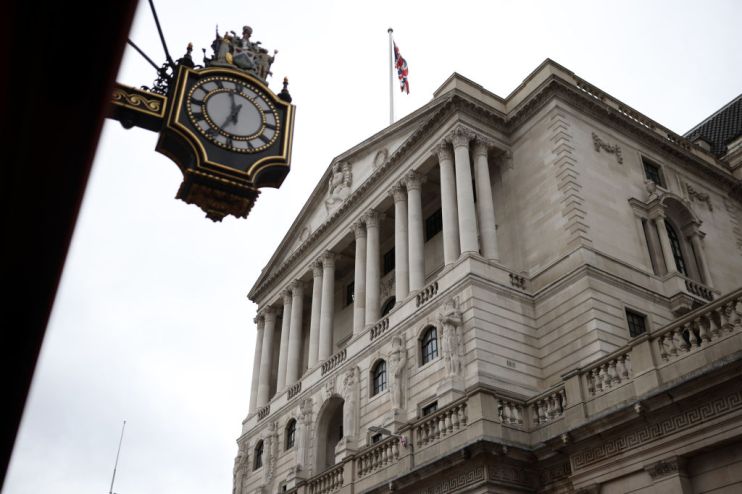Bank of England chief economist warns of ‘significant’ response to market turmoil

The Bank of England’s chief economist today rushed to calm the City by promising a “significant” response to the UK market turmoil.
Huw Pill said it is hard “not to conclude” the Bank must hike interest rates steeply at its next meeting on 3 November after markets were rocked by chancellor Kwasi Kwarteng’s tax cuts and borrowing splurge.
However, he effectively ruled out an emergency inter-meeting rate rise, backing a more “considered approach, a lower-frequency approach”.
Pill’s remarks open the door to a possible 100 basis point hike and further steep rate rises. Markets think borrowing costs will top six per cent next year.
The pound whipsawed today, giving up all its early gains to eventually weaken against the US dollar in early evening trading. It rose around 0.1 per cent against the euro.
UK borrowing costs accelerated rapidly again after they surged at the beginning of the week.
Yields on the 30-year gilt breached five per cent for the first time since 2002. Yields and prices move inversely.
Chancellor Kwasi Kwarteng today tried to calm corporate concern about the past week’s market turmoil, telling a group of City executives that the government is committed to “fiscal discipline”.
Kwarteng told them that “we are confident in our long-term strategy to drive economic growth through tax cuts and supply side reform”, and that he will next month unveil a “credible plan to get debt to GDP falling”.
The meeting included executives from Aviva, Legal & General, Royal London, BlackRock, Fidelity and JPMorgan.
The chancellor and his deputy Chris Philp also met with Tory backbenchers to calm the political backlash to his tax cuts last week.
There were suggestions in The Guardian today that Kwarteng and Prime Minister Liz Truss had rowed over the government’s response to the plunging pound and that the pair had a heated argument on Monday.
Analysts said they are sceptical of the government’s fiscal plans.
The “risk premium attached to sterling… may not fade quickly, given lingering uncertainty about the new government’s commitment to fiscal discipline,” John Higgins, chief markets economist at Capital Economics, said.
London’s FTSE 100 closed lower. The mid-cap FTSE 250 shed over two per cent.